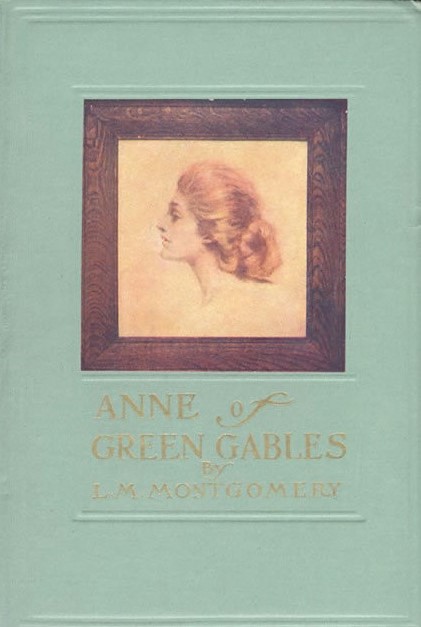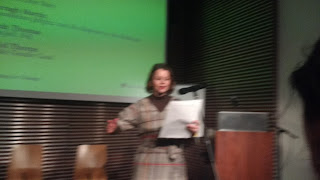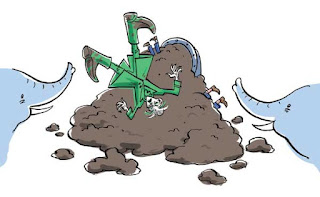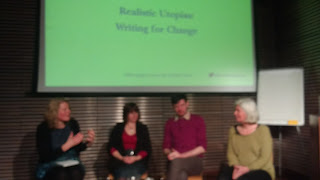What stories for children told today will still be around in 100 years? What qualities in these books will future generations find appealing?
What's got me wondering about this is that lately I've been looking at remarkable books still popular now that were written either in or about the 19th century.

Amongst these are Laura Ingalls Wilder's best-selling series of
Little House books and Lucy Maud Montgomery's series beginning with
Anne of Green Gables. Both are still in print.
Wilder based her books on her childhood which was in the northern Midwest US during the 1870s. She wrote eight titles which were published by Harper & Brothers from 1932 to 1943.
Of the Little House books I've been particularly entranced by the first,
Little House in the Big Woods. It tells in extraordinary detail how her family – Caroline and Charles, elder daughter Mary Amelia, and herself, aged 6–7 – survived in the frozen woods of Wisconsin in an almost completely self-sufficient way of life.
Charmingly illustrated, it is almost a 'how-to' manual of survivalism, describing in some detail the making of clothes, gathering of wild honey, butchering of animals, how to birth a calf, how to make butter and cheese, and how to keep warm and travel on a sleigh in deep snow (put hot baked potatoes in your pockets and boots).
Most interestingly it describes the collection and refinement of maple syrup from the sap of the trees which is done with Grandpa and Grandma.
When Pa goes hunting he hauls back a deer and this is skinned, the leather cured and the meat smoked for the winter.
If I were ever on Desert Island Discs I think I'd choose this book to take with me to the desert island because it would be both helpful and entertaining!
For it's not all hard work. Most nights Pa tells the girls a story (which we hear too) with them sat on his knee and plays them a song on his fiddle.
Not only can Pa build a house, hunt and make furniture, he is musical!
Little House in the Big Woods was serialised in the BBC tv programme
Jackanory in the 1960s.
Little House on the Prairie continues the story in the same style, describing how in 1869 the family moved via covered wagon from Wisconsin to Indian Territory on the prairie of Kansas. Then they had to build a whole new house.
Little House on the Prairie became an NBC network tv series that ran from 1974 to 1983 and revealed much about the pioneers and settlers and their relationship with the indigenous tribes.
Lucy Montgomery's Anne series is likewise a glimpse into a lost world. Although fictional it is strongly based on the real community of New London, Prince Edward Island in North East Canada.
A key moral message of the books is the need for self-improvement, and the civilising values of respect for others.
As a more sustainable version of Disneyland or Harry Potter World, the location for the story, Green Gables farm, became a visitor centre and the seed for the creation of a National Park.
Nowadays, adults probably read these books now more than children, but they may be reading them to their own children simply because they themselves read them when they were kids.
They are fascinating because they provide a window onto another way of life. There is a nostalgia or a longing for those simpler times and the simple morality they espouse. It seems a marvel that the ways of life described are only three or four generations ago.
And there's a feeling that perhaps, if the apocalypse comes, we or our children may have to learn to live that way again: close-knit, close to nature, relying on our wits, fitness, morality and skills. I think that's why I put some of these practical tips about survival in my own apocalyptic novel
Stormteller.
Maybe in 100 years it will be these kind of books that will still be read. What do you think?
[David Thorpe is the writer of Marvel's Captain Britain, the sci-fi YA novels Hybrids, Doc Chaos: The Chernobyl Effect and the cli-fi fantasy Stormteller.]




















